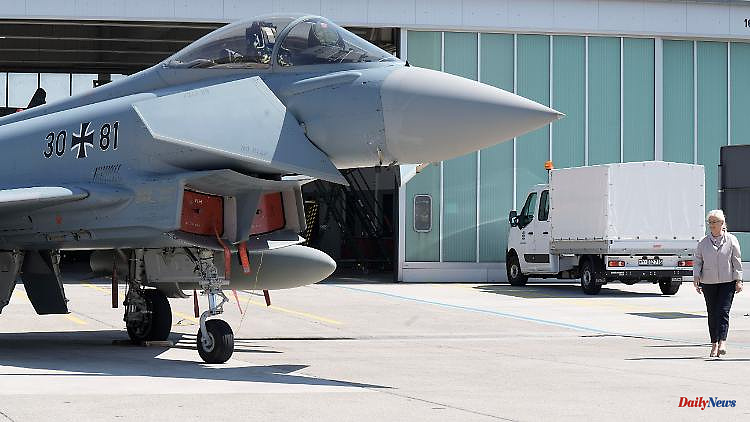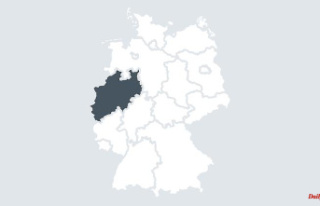For years there has been far less money for the Bundeswehr than the NATO partners would like. The 100 billion special fund brings the two percent target within reach for the first time - but according to a study it will still be missed.
Despite the 100 billion euro special fund for the Bundeswehr, Germany is likely to miss NATO's two percent spending target in the coming year and especially in the next electoral term - contrary to the Chancellor's promise. This is the result of an as yet unpublished study by the German Economic Institute (IW) presented to the "Rheinische Post". In it, the institute calls on the federal government to better prepare for the necessary significant increase in defense spending even after 2026.
If one takes the statement by Federal Chancellor Olaf Scholz seriously on February 27, that from now on the NATO target of two percent of economic output for defense should even be exceeded, there remains a gap in the government's budget planning, the institute criticizes. "No expenditure from the special fund is planned for 2022, for 2023 just 8.5 billion, leaving a gap of just under 18 billion euros (until the NATO target is reached)," the study says.
In the years that follow, up to 2026, the NATO target will only almost be achieved, but not exceeded. From 2027, however, the financing to meet the two percent target is completely unclear. "If the special fund is used up by then and the defense budget is not increased, there will be a gap of around 35 billion euros. If this is not closed, the share of defense spending in gross domestic product would fall to around 1.2 percent," says the IW- Study.
The government must clarify at an early stage how the "breakdown edge" in defense spending can be prevented "in order to achieve long-term planning security beyond 2026," the authors of the study demand. "Without this stabilization, the defense industry cannot adapt to future requirements."
The institute praises the special fund because it will ensure security in the defense industry, at least until 2026, that the money is really available. "Nevertheless, the regulation also shows that the existing political restrictions - no tax increases, no cuts, debt brake in the current form - are too restrictive for the necessary additional expenditure," says the IW. "By 2026 at the latest, a regular defense budget that has been increased by a good 60 percent must be made available to meet the two percent target."












